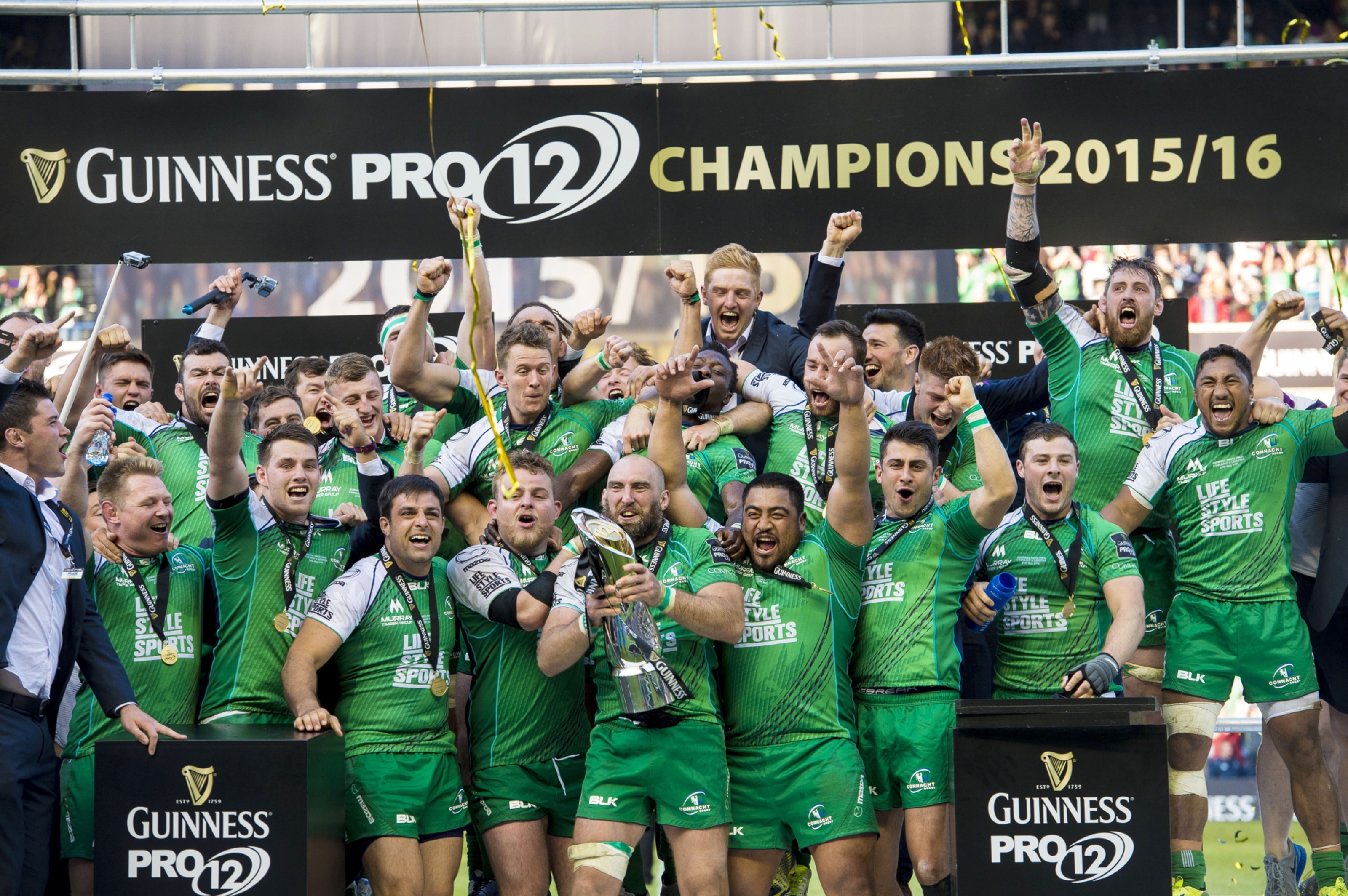It must be the year of the unlikely underdog: Connacht beating Leinster 20-10 to win the Guinness PRO12 final at BT Murrayfield is just like Leicester City winning the Premiership.
Except it’s not. Leicester aren’t customarily stripped of their best players by their three neighbouring teams. For all their financial disadvantages to the big guns, Leicester aren’t held to a budget tiny in comparison to their rivals and semi-officially described as a “development” team.
Leicester have never been about to be wound up by their parent association, a fate that awaited Connacht only three or four years ago as the IRFU were poised to split even their meagre resources between Leinster, Ulster and Munster.
The two teams from different codes don’t even begin to compare. The west Irish province’s rise is similar to Leicester is only similar in the swiftness of their journey from also-rans to champions and the influence of an innovative foreign coach who has absolutely maximised his tiny resources.
It’s the former Samoan captain – and briefly Scotland forwards coach – Pat Lam who has transformed Connacht from the whipping boys of the Celtic League into a champion team that unquestionably deserved the title.
Lam was probably the least impressed man inside Murrayfield as his team dismantled the three-time European champions – and unquestionably the favoured team of the establishment that has held Connacht down for so many years – by three tries to one. “Of course we can,” he said dismissively to the question of whether Connacht could repeat as champions.
One can only imagine the feelings of the long-time and loyal staff of the province, who followed Connacht for years around the circuit and saw their underfunded team habitually thrashed week after week by 40 points or more. But we don’t have to imagine, because one of them who suffered through those years was still in the team and Saturday’s man of the match, skipper John Muldoon.
“My heart rate is still up there,” said the true warrior in green in the aftermath of a game his team ultimately won with some comfort after a 15-0 first half blitz. “It’s absolutely phenomenal. You dream of days like this but it definitely won’t sink in for a while.”
There were symbolic elements all about Connacht all over the stadium. Every neutral in the stadium (and there were a fair few in the record 34,500 crowd; so much for Murrayfield being a bad choice for the final) was on their side, and there was more green on show since Celtic played a European game there.
There are still elements of the old ways around; Robbie Henshaw, the Connacht and Ireland centre, was playing his last game for his native province before his move to, you guessed it, Leinster. The favourites’ try, when it eventually came, was scored by Sean Cronin, who was Connacht’s hooker for a decade before he was plucked for the Dubliners.
There was one short spell of doubt for Connacht, after their first half blitz and super tries from Tiernan O’Halloran and Niyi Adeolokun, was followed by Matt Healy’s try in the second half. The inevitable rush of replacements illustrated their weakness and Leinster’s remaining strength, but the defensive wall that kept Glasgow at bay in two games in the past month just about held.
Leinster were listless throughout, a massive hit on their main man Jonny Sexton by the PRO12’s player of the year, Bundee Aki, setting the tone. The star of the Lions stand-off seems to be falling fast as he grows increasingly irate on the pitch when things don’t go his way.
What lessons for the Scots PRO12 teams? Glasgow know that if they had stayed with 15 men in their first visit to Galway earlier this month they probably would have won that game and had possibly decisive home advantage for the semi-final.
Don’t doubt, however, that the better team reached the final; the scoreline in the semi that was eventually played at the Sportsgrounds flattered the Warriors.
The lessons are starker for Edinburgh. Connacht’s triumph is even more admirable for the way they play the game, running as much as possible, seeking to be positive with the ball as well as destructive without it.
It took just three years for Lam’s philosophy to manifest itself with this club despite scant resources; the same time as Alan Solomons has had at Edinburgh to be no better than eighth in the league.


